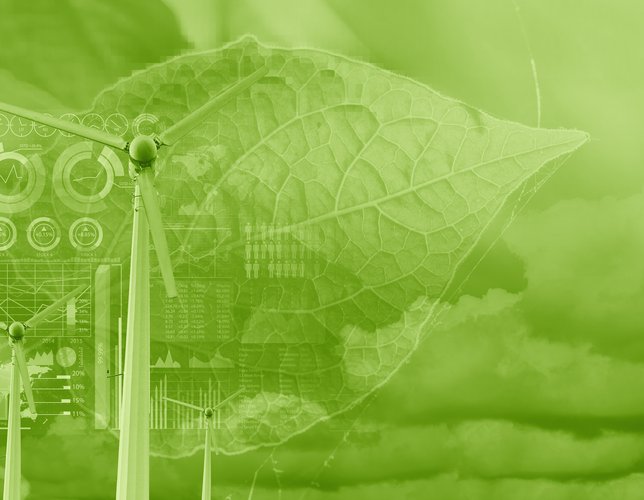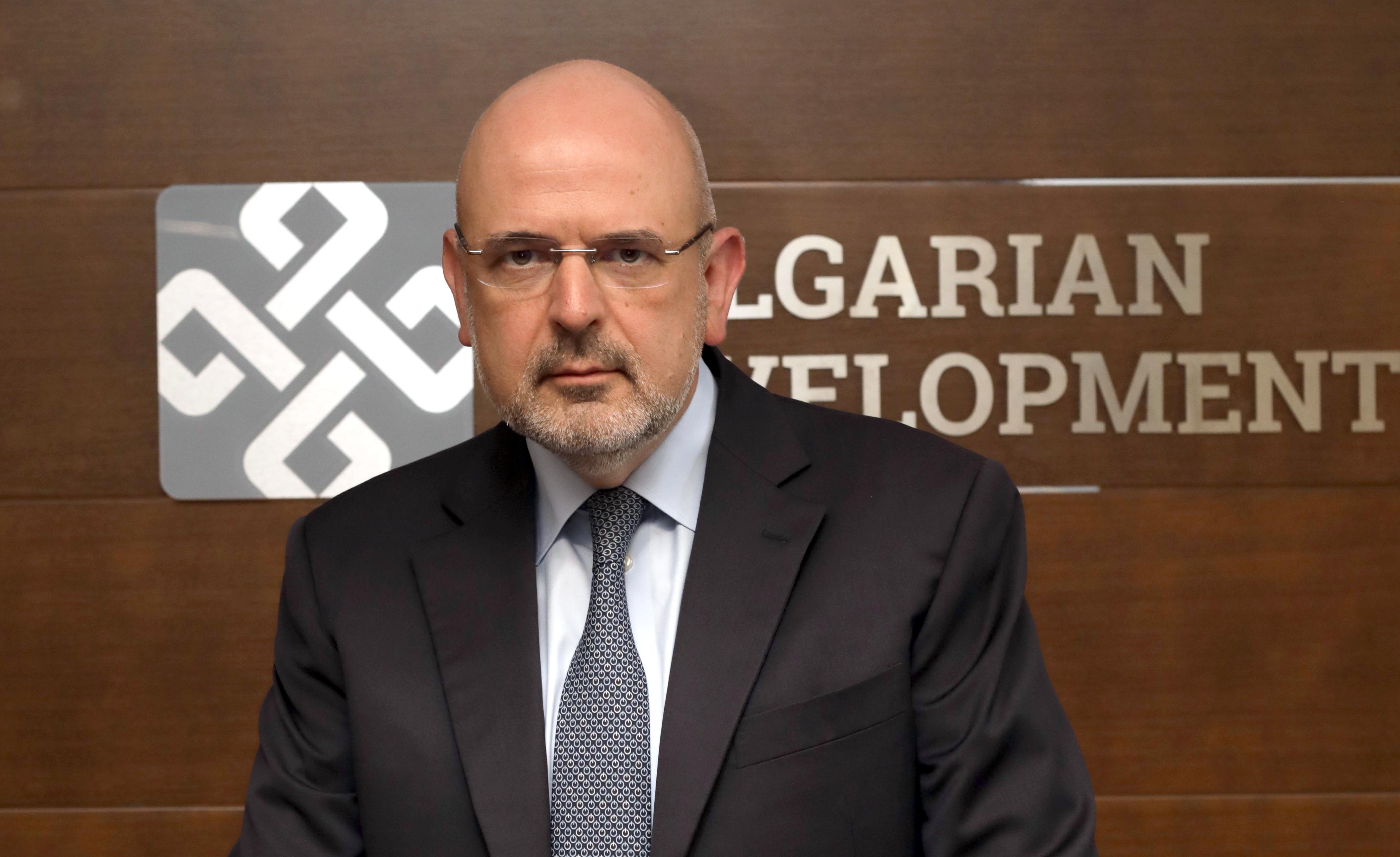
The Green Deal is a great chance for our country
 Iliya Lingorski, Chief Economist, Bulgarian Development Bank, in an interview with Lyubomir Grozdanov
Iliya Lingorski, Chief Economist, Bulgarian Development Bank, in an interview with Lyubomir Grozdanov
Mr. Lingorski, how will the European Green Deal affect the Bulgarian economy? What macroeconomic effects to expect?
The Green Deal is a great chance for our country. It can be the catalyst we need to accelerate the economic growth and significantly increase the technological level of businesses and all economic and social activities. On one hand, the Green Deal will bring a lot of investment into the economy through funding under the Sustainable Europe Investment Plan in the energy, industry, infrastructure, transport and environment sectors, which will also mobilize a lot of private investment. For the whole EU, investments of more than € 1 trillion are expected over a ten-year period, with the EU budget providing just over € 500 billion and attracted private investment being at least as much. Realistically, it could be even more.
On the other hand, the Green Deal will boost the competitiveness of the Bulgarian economy, especially in the area of energy efficiency. For years, our country has had the lowest energy efficiency in the EU, with energy consumed for the production of one euro of GDP being three times higher than the EU average. Whenever we talk today about a green economic transition, we must not forget that we are talking first about a technological transformation and not so much about a resource transformation. This is what our economy needs in order to be competitive in the future, but not primarily on a price basis.
The specific financial mechanisms are not yet fully structured, but you mentioned private investment. So I will ask you, what will be the role of the financial system, and banks in particular, in financing green investments?
In the EU, as well as in Bulgaria, the banking system dominates the financial sector. Funding to businesses, both for capex and open, is provided mainly by banks. Therefore, it is only natural that banks play a key role in financing private investments to complement the investment provided under the Green Deal.
I should point out here that the pace at which private banks will get involved in financing green investments will not necessarily be the same as that required to achieve the relevant investments over a given period. After all, these investments have a longer-term horizon compared to the normal risk in commercial lending. They also bear greater risk because additional performance, efficiency and environmental indicators need to be considered.
Last, but not least, banks can generate profits in the medium to long term rather than in the short term, while their liabilities are mostly short-term. Although most banks have already adopted the course of green and socially responsible lending, the aforementioned three factors may be now and then constraining for the full and prompt deployment of their resources up to the pace that the demand side will require.
What then is the solution to this problem?
Private banks will need help from the state, not directly, but through development banks and/or financial instruments. Development banks will be of key importance to the successful facilitation of long-term green investments. For this purpose development banks may directly provide green loans structured specifically for small and medium-sized enterprises or issue guarantees to private commercial banks, which then lend to green investment projects.
In this context, can we expect new innovative business models to emerge in the energy and manufacturing sectors?
We see and have much innovation in finance as well, so it is almost certain that new practices will emerge. Until recently the energy sector was funded much like real estate on the assumption of a predictable, secure and regular income. However, energy markets in the last three years have behaved a lot more like some of the financial assets markets. This normally calm market has experienced high volatility, which has significantly changed the risk and income profile of this sector. We have seen negative oil price values, whilst a few percentage points intraday and daily change in natural gas, carbon and electricity prices has become the new normal. Much of this is largely due to the digitization of the financial sector and markets, which inevitably pushes for a rapid digitization in energy, in manufacturing, in services and even in agriculture.
We will see a lot of investment right in the real economy, which will foster energy efficiency. With the high volatility of energy prices, providing secure energy use at a price that is known and fixed in advance for a long period is becoming increasingly expensive and unaffordable. Individual businesses will, therefore, be forced to find solutions, which will necessarily include digitalization and green investment.
Energy and digitalization are also major topics of the Three Seas Initiative, in which Bulgaria is a participant. Is there synergy between the Initiative and the Green Deal, and can Bulgaria benefit from both?
There is an evident synergy between the two. Moreover, the Three Seas Initiative perfectly complements the Green Deal by including a new instrument – private equity investment in businesses and projects through the Three Seas Initiative Investment Fund, of which Bulgaria, through the Bulgarian Development Bank, is also a shareholder. The investment focus of the Fund is in energy, transport and digitalization.
This Fund can mobilize private equity investment in the sectors that are also the focus of the Green Deal. The Fund's first deal in Bulgaria is already a fact, in the renewable energy sector. I am sure that more will follow in the upcoming months. In this regard, it is very important for us to promote adequate and appropriate investment projects in which the Fund can invest. For this, however, we need ideas and more human resources to be involved in the development of projects.
Are graduates prepared to be the drive of transition in the coming years? What are the key skills they should have?
I have already mentioned that there is a lot of innovation in finance, but that often requires a good knowledge of the traditional and fundamental financing models. I am pleased that the graduates, of whom, by the way, I have excellent impressions, have an excellent understanding of traditional and modern financing models. Therefore, I believe it will be easy for them to innovate and create new things. They definitely should not be afraid of the new and should explore what is happening in the world. They should not stop learning, digitizing, provoking and experiencing their God-given creativity and curiosity throughout their professional, entrepreneurial or academic path.
Iliya Lingorski is Chief Economist at Bulgarian Development Bank and Co-Chairman of the Energy, Infrastructure and Public-Private Partnership Commission of the European League for Economic Cooperation. His experience over the past 25 years has been in investment banking, project finance, tourism, energy, public finance, international financial institutions and academia. He was Deputy Minister of Finance and Head of Treasury in the Simeon Saxe-Coburg-Gotha’s government, Alternate Governor for Bulgaria of the International Monetary Fund and Chairman of the Supervisory Board of the Bulgarian Development Bank. He was a member of the Board of Directors of Bank Consolidation Company AD, Chairman of the National Council for Restructuring and Development of the Steel Industry in Bulgaria and a member of the National Council for Science and Research with the Minister of Education and Science (now the National Council for Science and Innovation).
His postgraduate specialization was in mathematical modelling with applications of artificial intelligence systems at Oxford University and his researches on the use of optimization models with genetic algorithms and fuzzy logic for modelling and selection of composite and structural materials have been published internationally. He has a PhD degree in economics from the Higher School of Insurance and Finance with emphasis on researching and modelling structural convergence and reporting divergence in the euro area accession and integration processes. From 2014 to 2017, he was a Trustee of the American University in Bulgaria. Since 2017, he has been a member of the University Council of AUBG. He is a member of the US State Department's Overseas Security Advisory Council (OSAC). In 2020, he was elected Chief Economist of the Atlantic Club of Bulgaria.
